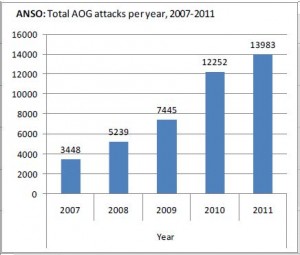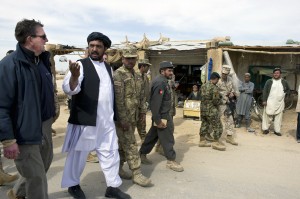DiFi Admits She Okayed Unleashing 21st Century WMD with Inadequate Details
The reason Dianne Feinstein is so torqued about the StuxNet story, according to this SFChron piece, is because she learned things from it that she didn’t know as a Gang of Four member.
Feinstein declared, “This has to stop. When people say they don’t want to work with the United States because they can’t trust us to keep a secret, that’s serious.”
A week later, Feinstein is more than halfway through New York Times reporter David E. Sanger’s book, “Confront and Conceal: Obama’s Secret Wars and Surprising Use of American Power.” She told me Wednesday, “You learn more from the book than I did as chairman of the intelligence committee, and that’s very disturbing to me.”
Now, as a threshold matter, I think DiFi and others are underestimating how much our foreign partners are leaking on these stories; not only did foreign sources serve as early confirmation on UndieBomb 2.0, but the Saudis and Yemenis exposed the last infiltrator the Saudis put into AQAP. And as for StuxNet, the Israelis are now complaining that Sanger didn’t give them enough credit.
The Israeli officials actually told me a different version. They said that it was Israeli intelligence that began, a few years earlier, a cyberspace campaign to damage and slow down Iran’s nuclear intentions. And only later they managed to convince the USA to consider a joint operation — which, at the time, was unheard of. Even friendly nations are hesitant to share their technological and intelligence resources against a common enemy.
Plus, if and when Israel bombs Iran and has to deal with the retaliation, I can assure you the Israelis will be happy to work with us.
And there’s a far bigger problem here. DiFi was not a Gang of Four member when this program started under Bush (Jay Rockefeller would have been the Democrat from the Senate Intelligence Committee). But she seems to say she got what passed for briefing on StuxNet.
Yet she’s learning new details from Sanger.
StuxNet is, both because it can be reused by non-state actors and because of the ubiquity of the PLCs they affected, the 21st Century version of a WMD. And all that’s before we learned Flame was using Microsoft’s update function.
Now from the sounds of things, DiFi never had the opportunity to authorize letting StuxNet free; the Israelis don’t have to brief the Gang of Four. But the possibility StuxNet would break free on its own always existed. One reason we have Congressional overseers is to counterbalance spooks whose enthusiasm for an op might cloud any judgment about the wisdom of pursuing that op.
The US, in partnership with Israel, released a WMD to anyone who could make use of it. And the people in charge of overseeing such activities got fewer details about the WMD than you could put in a long-form newspaper article.
And DiFi thinks there’s too little secrecy?


